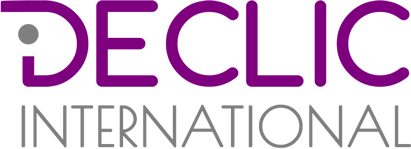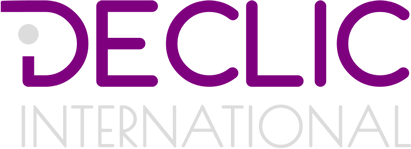9 actions to drive ethnic diversity (part 4 of 4)

This is the forth and final part of a four-part blog series that explores ethnic diversity: key concepts, facts, myths, barriers and enablers. My intention is to equip you with the right knowledge and tools to succeed in building and engaging an ethnically diverse team, without alienating the ethnic majority. Another series will follow specifically about religious diversity.
Today, I’m proposing nine inclusive leadership habits to drive ethnic diversity.
The leadership habits described below follow the Inclusive Leadership Propeller Model©. This model empowers business leaders and managers to navigate human differences smoothly, by consistently applying three skills: fairness, empathy, and proactivity. More information about it in my book “Succeed as an inclusive leader –Winning leadership habits in a diverse world.”
Fairness – Are you being fair?
1- Identify and challenge ethnic bias
If you realise people are hesitant to hire or promote someone because of his or her ethnic background, dare to bring the issue to the table. You can take a Harvard Implicit Association[i] test on ethnicity, which is a free online resource, to find out your own biases and suggest your team take it too.
2- Respond when you see disrespectful behaviours and remarks
Fight disrespectful behaviours, also when they affect “majority” groups. Don’t forget to show your support directly to whoever is the target of such behaviours. I once visited a company where white British employees felt ostracised by Eastern Europeans workers who tended to speak in their own language without realising the negative impact on other colleagues.
3- Post job ads as much as possible
Based on the affinity bias principle, if you don’t post your job ads, you’ll tend to attract more of the people who already belong to your organisation. If your team or organisation is not ethnically diverse, the less reliant you are on word of mouth and referrals, the bigger your chances to attract qualified candidates with diverse ethnic backgrounds.
4- Look at history and data per ethnicity
How often have you hired and/or promoted people from ethnic minorities? In which hierarchical levels of your organisation, can you find people from ethnic minorities? Even in countries where ethnic statistics are not available, you can empirically tell where disparities are. I’ve seen construction sites with a high concentration of ethnic minorities at entry level positions and not a single manager from an ethnic minority. If you’re based in a country where ethnic statistics are available (US or UK, for instance), ask your human resources teams to have access to the data so that you can check if your team reflect the ethnic diversity of your labour market and if ethnic minority employees have equal access to promotion and training.
Empathy – Are you treating others as they’d like to be treated?
5- Inform yourself about how ethnicity influences people’s experiences
You can ask people simple questions like “Do you think ethnicity/race/origin impacts the way people are treated or their chances of getting hired and promoted here?” Get everyone’s opinion, including but not only, the opinions of people from ethnic minorities. You’ll be able to better understand specific challenges if any, and figure out ways to overcome them.
6- Offer language support to foreign candidates and employees
If fluently speaking the local language is not a requirement for the job, helping candidates to fill in forms or giving then more time to perform tasks at the selection stage will increase your chances of identifying qualified foreign candidates. Offering language lessons can also increase the growth opportunities of employees who have the technical skills but not the language skills. I’ve seen a construction company that offered French lessons to help internal candidates qualify for supervisory roles.
Proactivity – Are you accelerating positive change?
7- Be open to credentials and degrees from non-elite and foreign universities
This will broaden your talent pool and increase your chances to reach out to qualified candidates with more ethnic and socially diverse backgrounds. If you’re looking for interns, you can also send adds to these organisations.
8- Communicate about your openness to ethnic diversity
Tell your human resources, recruitment, and temporary agencies you want to increase ethnic diversity in your team. In this way, you encourage them to consider qualified candidates they might have overlooked, and even to look for candidates in different places. As always, final decisions should always be based on skills and competence.
9- Mentor and sponsor people from ethnic minorities
Research shows that the one single characteristic that all ethnic minorities who advance in their careers share is a strong network of mentors and sponsors. You can support existing employees, as well as students who are not yet part of the corporate world. You can do this informally or participate in official mentoring programs if your company has any. You can also pair new hires from ethnic minorities with buddies or mentors during the onboarding process.
PS: this article’s cover image is taken from the project Humanae by the photographer Angélica Dass, a Brazilian artist who’s using photography to show that humanity is far more diverse than just black and white.
***
Thanks for taking the time to read this post. Let me know what you think about it in the comments below.
This is an excerpt of my book “Succeed as an inclusive leader – Winning leadership habits in a diverse world”.
Looking for effective ways to accelerate your progress towards inclusion? Register for the best train the trainer training on inclusive leadership. Click HERE to find out more about it.
ABOUT THE AUTHOR
THAIS COMPOINT is a top global specialist in inclusive leadership. Her achievements have been acknowledged with 15 awards world-wide, including the prestigious “2019 Top Global Diversity and Inclusion Leaders Award”. She’s a speaker, author, facilitator, and consultant with 19 years of experience. Thais spoke at three TEDx events, is the author of “Succeed as an inclusive leader”, the creator of the Inclusive Leadership Global Conference, and the host of the podcast “The Inclusiveship Show”. Thais is also the founder and CEO of Déclic International, a global boutique consultancy that she founded after leading the inclusion & diversity strategies of three Fortune 500 companies: Vinci, Coca-Cola Enterprises and Cisco. Déclic has served clients in more than 10 industries, including organisations such as Barclays, Pfizer, Allianz and Accor.
References
[i] https://implicit.harvard.edu/implicit/takeatest.html.



